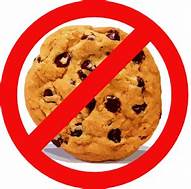Many athletes spend a lot of time surfing the Web, looking for answers to their nutrition questions. Given the average American spends 24 hours a week online, that allows a LOT of time to find way too much conflicting information. Athletes can easily end up more confused than ever. May the science-based answers in this blog resolve some of the confusion about carbohydrates in a sports diet.
Are carbs a waste of calories, with little nutritional value?
The answer depends on your definition of “carbs.” Many athletes define carbs as sugar-filled baked goods and foods made with refined white flour, such as pasta, bagels, bread. In reality, carbohydrates include all types of sugars and starches. Carbs are in fruit, vegetables, beans (pinto, lima, garbanzo, etc.), grains (wheat, rice, barley, corn), and milk. These “quality carbs” add important nutrients to a sports diet. Even white breads and pastas offer important B-vitamins and iron because they are enriched. While you want at least half of your grains to be whole grains, a sandwich made with white bread can be balanced into an overall whole-foods diet, and it will not ruin your health forever.
Should athletes cut out sugar?
Sure, if that means cutting out EXCESS sugar. But if you plan is to cut out all sugar, technically speaking, you would need to stop eating any form of carbohydrate (fruit, veggies, grains), given those foods end up as sugar (glucose) in your body. Their sugar fuels your muscles and brain. You’ll also need to cut out sugar-filled—yet performance-enhancing—sport drinks and gels.
Please judge a food based on all the nutrients that accompany the sugar, more so than just the sugar content. Some sugary foods are nutrient-rich. For example, the natural and added sugar in chocolate milk, in combination with the milk’s protein, make chocolate milk an excellent recovery food. (The sugar refuels the muscles; the protein builds and repairs the muscles.)
If your goal is to cut out added sugar, you might want to think moderation, rather than all or nothing. US Dietary Guidelines say 10% of calories can come from added sugar. A balanced sports diet can easily accommodate a small sweet a day.
Athletes who say they want to cut out sugar commonly have a love-hate relationship with (too much) sugar. While they may believe sugar is addictive, a standard reason for overdosing on sugar relates to hunger. The body of a hungry athlete screams for quick energy: sugar. One way to curb sugar-cravings is to eat a satisfying protein-rich breakfast and lunch. By curtailing hunger, you’ll enhance your chances of being able to choose quality carbs later in the day. Yes, eating enough breakfast can (and does) impact and improve your evening food choices. Give it a try?

